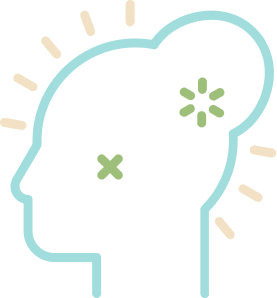ANXIETY COUNSELING
Freedom From Struggling with Anxiety
Women’s Therapy in Ballard, Seattle


Is Anxiety A Problem in Your Life?
Overwhelm, unease…
A pit in your stomach…
A racing heart…
Worry…
and a mind that never stops going…
Exhaustion…
Anxiety makes everything harder.

Common Types of Anxiety I Can Help You Address
- Relationship Anxiety
- Pregnancy/Postpartum Anxiety
- Parenting Anxiety
- Past Trauma
- Career and Burnout/work-related
- Performance Anxiety
- Climate Change Anxiety
- Health Anxiety
- Existential Anxiety
- Political Anxiety
- Technological/Digital Anxiety
- Social Anxiety
- Driving, Flying, Heights,Animals,Blood/needles
- Agoraphobia, Claustrophobia
- General Anxiety
I Work with a Wide Range of Women Experiencing Stress/Anxiety in…
Work Relationships Parenting Pregnancy Major Life Transitions
These are some of the concerns that the women I work with bring in. If any of these sound like you, you may respond well to the anxiety treatment approach I offer.
“I feel overwhelmed.”
“I am my own worst enemy.”
“I feel like I am never enough.”
“I am on edge a lot of the time.”
“I always worry about something.”
“I am self-critical and hard on myself.”
“I often feel panicky and nervous.”
“I’ve lost my confidence.”
“I feel guilty a lot.”
“I feel stuck.”
Anxiety Therapy
Don’t Let Anxiety Hold YouBack, Live Your Life with More Ease

Are you struggling to unwind due to constant worrying, sleepless nights, and endless to-do lists? Do you constantly feel tense, on edge, and anticipating the worst? You may feel disconnected from people and things that matter, overwhelmed by life’s burdens. Anxiety can drain energy and rob you of precious time, exhausting you. Racing thoughts can interfere with treasured moment sand your best life. Life may seem unmanageable, out of balance as you constantly worry aboutletting others down. As life becomes increasingly burdensome, you may struggle to experiencejoy and carefree moments.
Anxiety can be a catalyst for growth and transformation, as it challenges us to confrontour fears and develop new strategies for coping and thriving.

Unpacking the Impact of Anxiety: How It Can Affect Different Areas of Your Life
Anxiety Symptoms Questions and Answers
1. What is it like to experience physical symptoms anxiety cause?
If you’ve ever had a stomach ache before a big presentation or a tension headache during a stressful interaction, you’ve experienced physical symptoms of anxiety. These symptoms can also include sweaty palms, a racing heart, or even nausea.
2. How does anxiety impact emotional wellbeing?
Imagine feeling like you’re always walking on eggshells, constantly worried about the future and unable to enjoy the present moment. Anxiety can make it hard to feel happy or relaxed, leading to panic attacks.
3. Can anxiety impact social interactions and relationships?
Have you ever declined an invitation to a party because you were too nervous to go or avoided talking to someone you’re interested in because you were worried about being rejected? Anxiety can make connecting with others complicated and even strain existing relationships.
4. How does anxiety affect work or school performance?
Anxiety can make it hard to focus on tasks, causing you to procrastinate or miss deadlines. It can also make you doubt your abilities and second-guess your decisions, leading to poor performance and missed opportunities.
5. Can anxiety disrupt sleep patterns?
If you’ve ever spent a night tossing and turning, unable to quiet your racing thoughts, you’ve experienced how anxiety can disrupt sleep patterns. This can leave you feeling exhausted and drained the next day.
6. How does anxiety impact self-esteem?
Anxiety can make you feel like you’re not good enough or that you don’t measure up to others. It can cause you to doubt your abilities and undermine your self-confidence, leading to a negative self-image.
7. Can anxiety hinder personal growth?

Know You Are Not Alone
Anxiety is common but often misunderstood, affecting more than 40 million American adults yearly, with women twice as likely to be affected. Global studies show women are almost twice as likely to experience anxiety. Overall, anxiety levels have increased for women since before the Pandemic. There is no indication that life will get less stressful and anxiety provoking with our new era of political and environmental changes. So, if you are experiencing anxiety, you are not alone. You’re not alone-public figures like Oprah, Lady Gaga, Emma Watson, and Simone Biles have spoken about their struggles with anxiety.
Anxiety Therapy for a Happier and Healthier Life
If you’re struggling with anxiety, don’t give up hope because there are effective treatments available to help you manage it. In fact, research shows that 80% of individuals experience significant improvements with treatment. Your treatment plan will be customized to your unique needs and may involve a combination of therapy, medication, and lifestyle adjustments. Remember that recovery is possible.
Free Yourself from Struggling with Anxiety with Iris Hogan
5 Signs You Anxiety-Specific Therapy Is Right For You
- You experience persistent feelings of worry, fear, or anxiety that interfere with your daily life. If you worry excessively about things that others may not find as concerning, or if you experience irrational fears or phobias that interfere with your daily life, it may be a sign that you could benefit from anxiety-specific therapy.
- You have physical symptoms related to anxiety. Anxiety disorders can cause physical symptoms such as sweating, trembling, rapid heartbeat, difficulty breathing, and gastrointestinal problems. If you experience any of these symptoms, it may be a sign that you could benefit from anxiety-specific therapy.
- You struggle with avoidance behaviors. If you find yourself avoiding certain places or situations that cause you anxiety, it can interfere with your ability to work or socialize. If so, anxiety-specific therapy may help develop strategies to manage these avoidance behaviors.
- You have difficulty sleeping. Anxiety can interfere with your ability to sleep, causing difficulty falling or staying asleep. If you are experiencing sleep disturbances related to anxiety, anxiety-specific therapy may help improve your sleep quality.
- You have tried other forms of therapy without success. Suppose you have tried other forms of therapy for mental health concerns but have not seen significant improvement in your anxiety symptoms. In that case, anxiety-specific therapy may be a beneficial next step in your treatment. Anxiety-specific therapy focuses on unique anxiety symptoms, making it a more effective approach to treatment.
How Therapy for Stress and Anxiety Works
Chances are you or someone you care about is experiencing anxiety in a very painful way. It is hard to believe—but stress and anxiety do not have to be the enemy that hijacks your life.
I use evidenced-based approaches and match them to you and your unique needs.
I draw from a wide range of best practices from disciplines like mindfulness, compassion-based, cognitive behavioral therapy (CBT), Acceptance Commitment Therapy (ACT), positive psychology, and neuroscience.
I wholeheartedly believe that you can learn to develop a different relationship with your painful thoughts and feelings, allowing you to live a full, present, and meaningful life.


Goal-oriented and present-focused.
I want to help you get out of your mind back into your life- to live a vital, fully present life. This means we will spend less time talking about the past and more time focused on creating the life you want.
In a warm, caring environment, we can look together at the challenges you are facing. You can unburden yourself, and we can find new ways to move forward. You can safely experiment with new tools and gain new skills.
What You Might Experience During Therapy
The tools acquired during therapy last a lifetime and can lead you into a fuller, more intentional, and satisfying life. I would be honored to work with you too!
- We will focus right away on giving you strategies and tools to get some relief from acute anxiety and feeling overwhelmed.
- I will help you to develop skills and tools like mindfulness, acceptance, different breathing techniques, and the use of self-compassion.
- You will learn how your body and mind react when you become anxious and what you can do about it.
- We will explore how anxiety affects you in different areas of your life -personal relationships, career, family, and recreational choices.
- You will learn about the role that avoidance has played in your life and how to reclaim the parts lost.
- Clarify your values so they can serve as anchors to help you navigate difficult emotions.
- Gain insights into your unique anxiety pattern, what triggers it, where it comes from, and how you can change it.
- Gain psychological tools that help you stay in the present moment and connect to what is important to you.
- …and more…
Specializing in Evidence-Based Treatments Support – Insights- Tools
for Women’s Anxiety
As a mother, wife, daughter, and professional navigating the complexities of home and career, I understand the challenges you face on a personal level. With two decades of experience in supporting women with anxiety, I am dedicated to being a compassionate ally and a practical guide for you.
My specialization is working with anxiety, ensuring you receive the most effective help. You can trust that the therapy you will receive is grounded in scientific research and proven through empirical testing.
My true passion lies in helping women navigate anxiety, empowering them experience greater inner peace and well-being. Let’s work together to uncover insights, provide support, and equip you with the tools necessary to thrive.

You May Wonder
- Does Online therapy work?
I do miss sharing tea with clients, but online therapy is effective. A recent study found online treatment equals face-to-face therapy. Online therapy is convenient, allowing support from home or work. It helps if traditional treatment is hard to access due to distance, mobility, or schedule. - Out-of Network Therapy is expensive. Why should I not go with someone on my insurance provider network list?
Choosing an out-of-network therapist provides advantages: a wider selection, expertise for the right fit, and flexible scheduling. In-network therapists may limit confidentiality and personal choice. Out-of-network therapy retains privacy without involving the insurance company. - Is therapy worth the investment of time and money?
Is therapy worth the cost? Improving mental health enhances the quality of life. Benefits include better relationships, self-awareness, and coping skills. Therapy offers a safe space to explore thoughts, feelings, and experiences, promoting growth and healing.
I’m here for you. Whether you’re still unsure and have questions… or are ready to schedule your first session.
Common Questions You May Have
Will Therapy Work for Me?
I want to be straightforward with you. Neither I nor any other clinician can promise that therapy will change everything or help you be completely symptom-free. I do have good reasons to be positive. The treatment modalities I use have excellent success rates. Many of the women I work with develop the skills to overcome stress and anxiety. They feel calmer and more self-compassionate and balanced. The tools acquired during therapy last a lifetime and can lead you into a fuller, more intentional, and satisfying life.
How Common is Anxiety with Women?
Women-Focused Facts and Statistics About Anxiety
- As women between puberty and age 50, we are almost twice as likely as men to develop an Anxiety Disorder.
- Anxiety disorders are the most common of all mental disorders and concerns reported in the United States.
- Women experience more body-based symptoms of anxiety than men.
- Women who suffer from panic attacks experience more shortness of breath, faintness, and smothering sensations than men.
- Women with OCD report that their obsessions are often more focused on cleaning, while men’s obsessions focus seems to be around symmetry.
- Panic disorder tends to be more chronic in women.
- 40 million adults, Americans, suffer from anxiety disorders. That’s 18% of the adult population in the US!
- People with anxiety disorders are five times more likely to seek medical intervention.
- Anxiety responds well to treatment but tends to remain unchanged without new tools and insights.
What causes anxiety disorders?
Anxiety disorders are the effect of a unique combination of live events genetic heritage, brain chemistry and personality.
Why are women more likely than men to experience anxiety disorders?
There has been a lot of research to understand why women experience anxiety more often. Yet, there is no conclusive answer to this question. Research indicates that there are several factors at work. Biological (genetic, hormonal), socio-cultural (gender-specific learning to respond to our emotions from our environment), and psychological factors.
When Is My Anxiety Too Much, and I Should You Get Help?
8 Signs that Your Anxiety May Be a Problem?
- Do your worries keep you awake at night; do you have a hard time keeping negative thoughts at bay?
- Have you experienced a panic attack: racing heartbeat, shortness of breath, or feelings of terror?
- Do you feel like an outsider even with friends, like you don’t quite fit in anywhere?
- You’re distracted by a stream of intrusive anxious thoughts.
- Does your Anxiety at work, home, or socially making it challenging to excel and perform?
- Do you avoid activities you might enjoy because of a feeling of dread?
- You suffer from headaches, nausea, vomiting, chest pain, or stress-related health concerns.
- Is my Anxiety is hurting my relationships?
What Can I do to Feel Better Now?
10 Things You Can Do Right Now To Feel Better
- Cut down your caffeine intake. Caffeine can interfere with sleep, make your anxiety worse, and even lead to panic attacks.
- Get enough sleep. Anxiety can lead to insomnia, and not sleeping enough decreases your ability to cope with stress and anxiety.
- Eat healthily. Eat well and often. Several smaller meals during the day are often better than three big meals for people with anxiety. When you go without food for long periods, your blood sugar drops, leaving you anxious and irritable and eating complex carbohydrates (whole grains, fruits, and vegetables). Complex carbs stabilize blood sugar and boost serotonin, a neurotransmitter with calming effects.
- Avoid alcohol and nicotine. Alcohol makes anxiety worse! It offers the lure of reducing anxiety and worry short-term. Still, it causes anxiety symptoms to intensify as it wears off. Nicotine is a potent stimulant that leads to anxiety.
- Learn to use deep breathing and relaxation techniques. Techniques like progressive muscle relaxation, deep breathing, and meditation have all been proven effective.
- Getting daily exercise can make a big difference in lowering your anxiety level. Exercise releases tension and reduces stress levels, which makes it a natural antidote to anxiety; it also releases endorphins, our brain’s “feel-good chemicals.”
- Limit your sugar intake.
- Connect with others. Spending time with other people in a meaningful way has been shown to lower anxiety.
- Do what’s meaningful to you. Make time for activities that nurture you and matter to you.
- Practice self-compassion-Having anxiety is challenging! Listen to how you speak to yourself and ask, “would I talk like this to a friend?” Try speaking with yourself in a more accepting way and observe how you feel.
Resources for Women with Anxiety
Free Resources for Self-Compassion, along with their URLs:
- Self-Compassion Guided Meditations: Kristin Neff, a pioneering researcher in the field of self-compassion, offers a variety of free guided meditations on her website. These meditations can help you cultivate self-compassion and reduce negative self-talk. URL: https://self-compassion.org/category/exercises/
- Self-Compassion Exercises: The Greater Good Science Center at UC Berkeley offers a variety of self-compassion exercises that you can try. These exercises include writing a self-compassionate letter to yourself, practicing mindfulness, and offering yourself kind words. URL: https://ggia.berkeley.edu/practice/self_compassion_exercise
- The Self-Compassion Workbook: This free workbook by Kristin Neff and Christopher Germer offers exercises and practices to help you cultivate self-compassion. The workbook includes reflection questions, journal prompts, and mindfulness exercises. URL: https://www.mindfulselfcompassion.org/resources/
- Self-Compassion.org: This website offers a variety of free resources for self-compassion, including articles, videos, and guided meditations. The website also includes a self-compassion quiz that can help you assess your level of self-compassion. URL: https://self-compassion.org/
- Mindful Self-Compassion Course: The Center for Mindful Self-Compassion offers a free 8-week online course in mindful self-compassion. The course includes guided meditations, exercises, and weekly reflections. URL: https://centerformsc.org/practice-msc/guided-meditations-and-exercises/
- Insight Timer App: The Insight Timer app offers a variety of free guided meditations on self-compassion. You can search for meditations specifically focused on self-compassion and save them to your library for easy access. URL: https://insightimer.com/meditation-topics/self-compassion
Free Acceptance and Commitment Therapy (ACT) resources, along with their links:
- ACT Mindfully: This website offers a variety of free resources for ACT, including worksheets, videos, and guided meditations. The website also includes a free online course in ACT. URL: https://www.actmindfully.com.au/free_resources
- The Happiness Trap: This website offers a free e-book of “The Happiness Trap,” a popular book on ACT by Russ Harris. The website also includes a variety of ACT resources and exercises. URL: https://thehappinesstrap.com/free-resources/
- Association for Contextual Behavioral Science (ACBS): The ACBS website offers a variety of free resources for ACT, including articles, videos, and podcasts. The website also includes a directory of ACT therapists and training programs. URL: https://contextualscience.org/free_resources
- Get Self Help: This website offers a variety of free worksheets and resources for ACT, as well as other forms of therapy. The website also includes a directory of self-help resources for a variety of mental health issues. URL: https://www.getselfhelp.co.uk/act.htm
- ACT Companion: This app offers a variety of free resources for ACT, including guided meditations, exercises, and journal prompts. The app also includes a feature for tracking your progress in ACT. URL: https://actcompanion.com/
- ACT for Life: This website offers a free online course in ACT, as well as a variety of other resources and exercises for ACT. The website also includes a directory of ACT therapists and training programs. URL: https://actcompanion.com/
Here are five high-quality meditation apps with their links:
- Headspace: Headspace is one of the most popular meditation apps available. It offers a variety of guided meditations, as well as courses on topics like stress, anxiety, and sleep. The app is availa
ble for both iOS and Android devices. URL: https://www.headspace.com/ - Calm: Calm is another popular meditation app that offers guided meditations, sleep stories, and relaxation exercises. The app also includes a variety of nature sounds and scenes to help you
relax. Calm is available for both iOS and Android devices. URL: https://www.calm.com/ - Insight Timer: Insight Timer offers a variety of guided meditations, music tracks, and talks from top meditation teachers. The app also includes a timer for silent meditation, as well as a feature for tracking your progress. Insight Timer is available for both iOS and Android devices.
URL: https://insighttimer.com/ - Ten Percent Happier: Ten Percent Happier offers guided meditations and courses led by top meditation teachers. The app also includes a feature for tracking your progress and a variety of talks on mindfulness and meditation. Ten Percent Happier is available for both iOS and Android
devices. URL: https://www.tenpercent.com/ - Buddhify: Buddhify offers guided meditations for a variety of situations, including work, sleep, and commuting. The app also includes a timer for silent meditation, as well as a feature for tracking your progress. Buddhify is available for both iOS and Android devices. URL: https://buddhify.com/
Contact me with questions! I would be happy to connect.
How Much Anxiety is Too Much?
If your worrying or anxiety interferes with your daily life
—whatever that might look like to you—
That is Reason Enough to Get Help.
